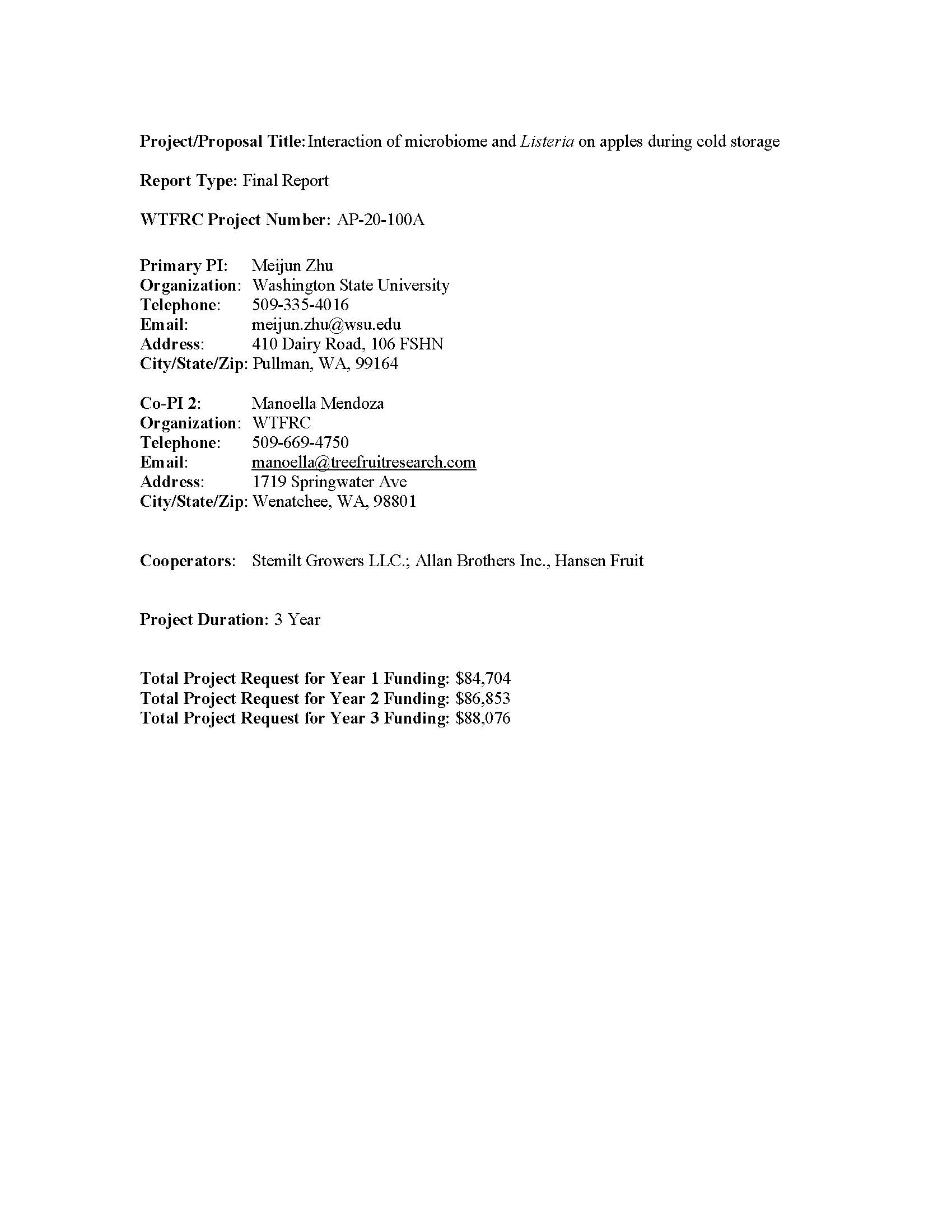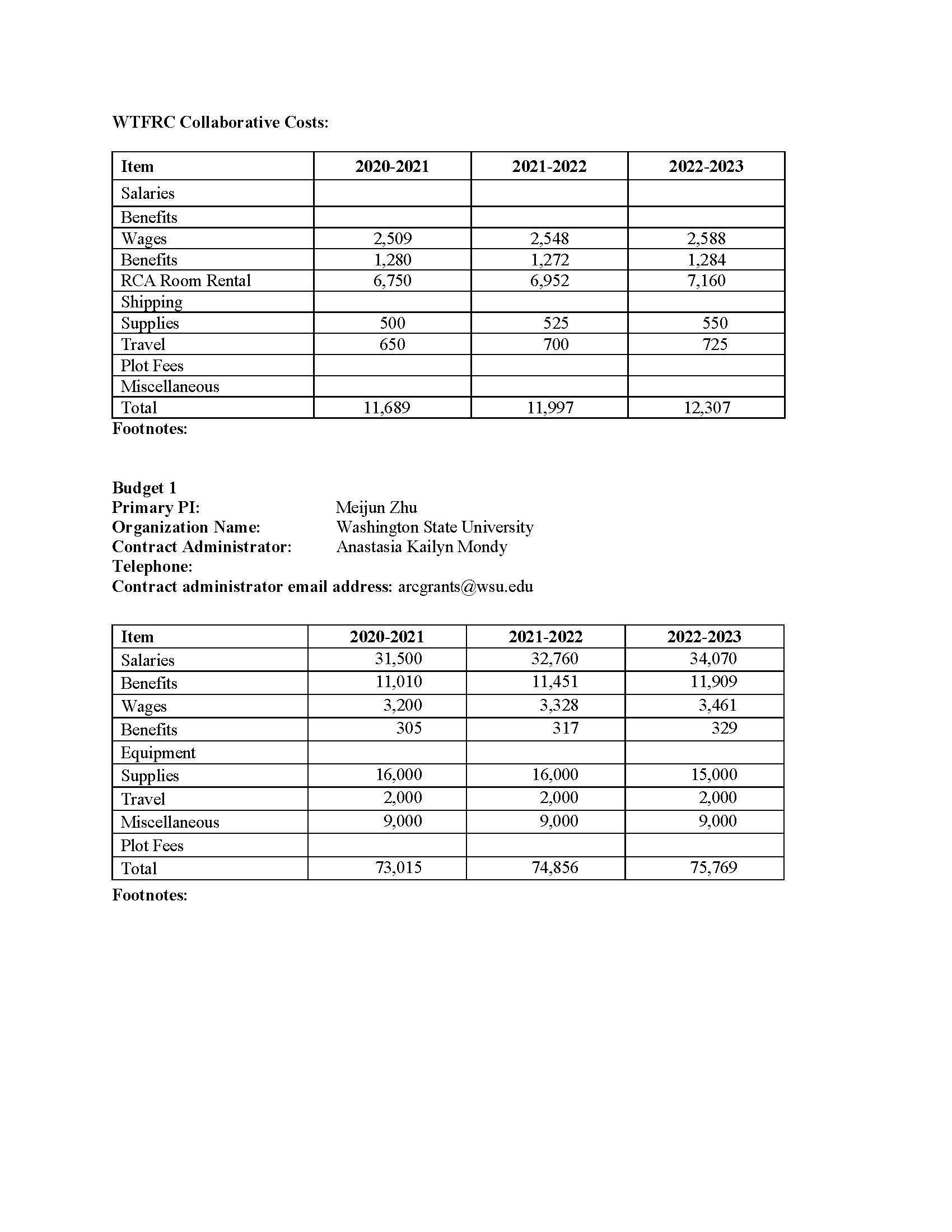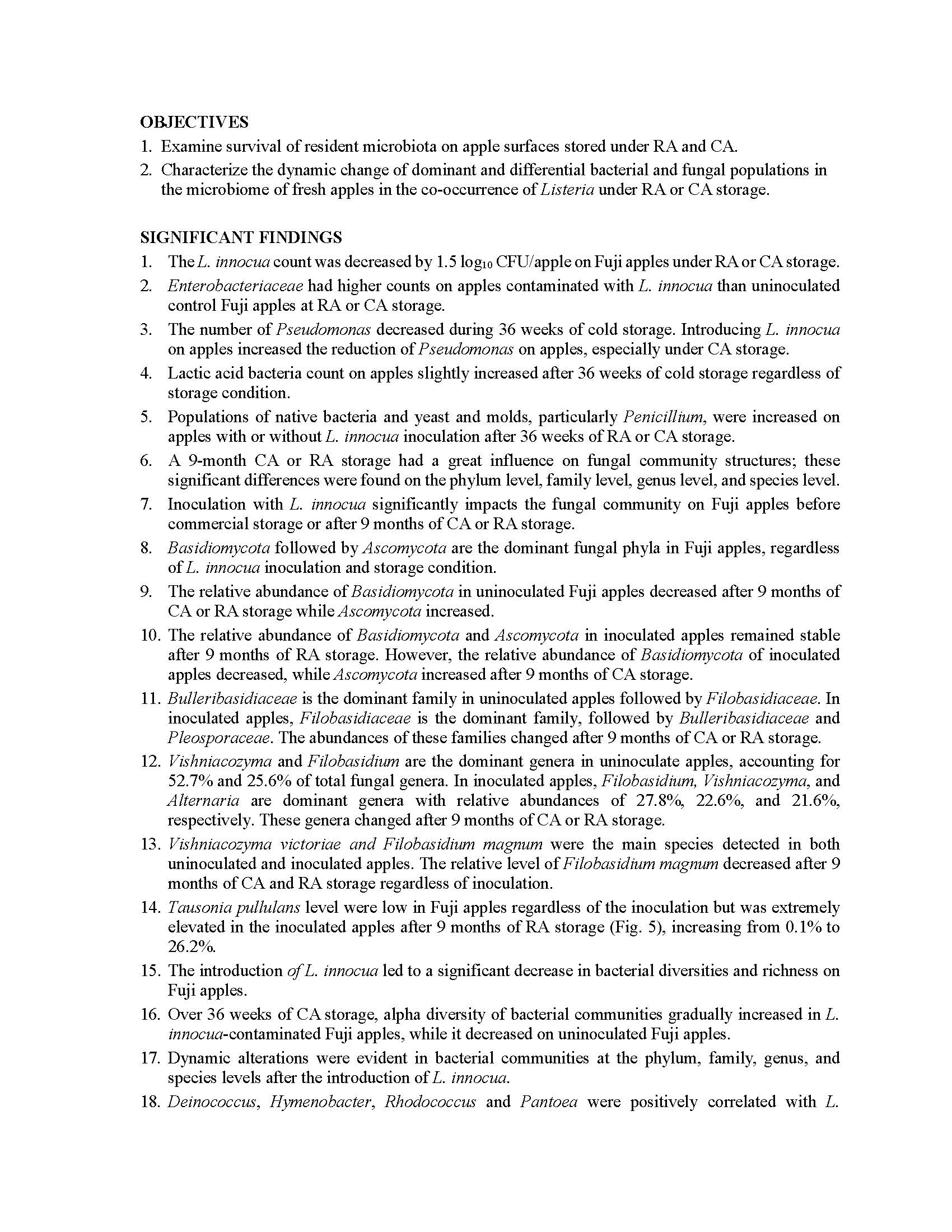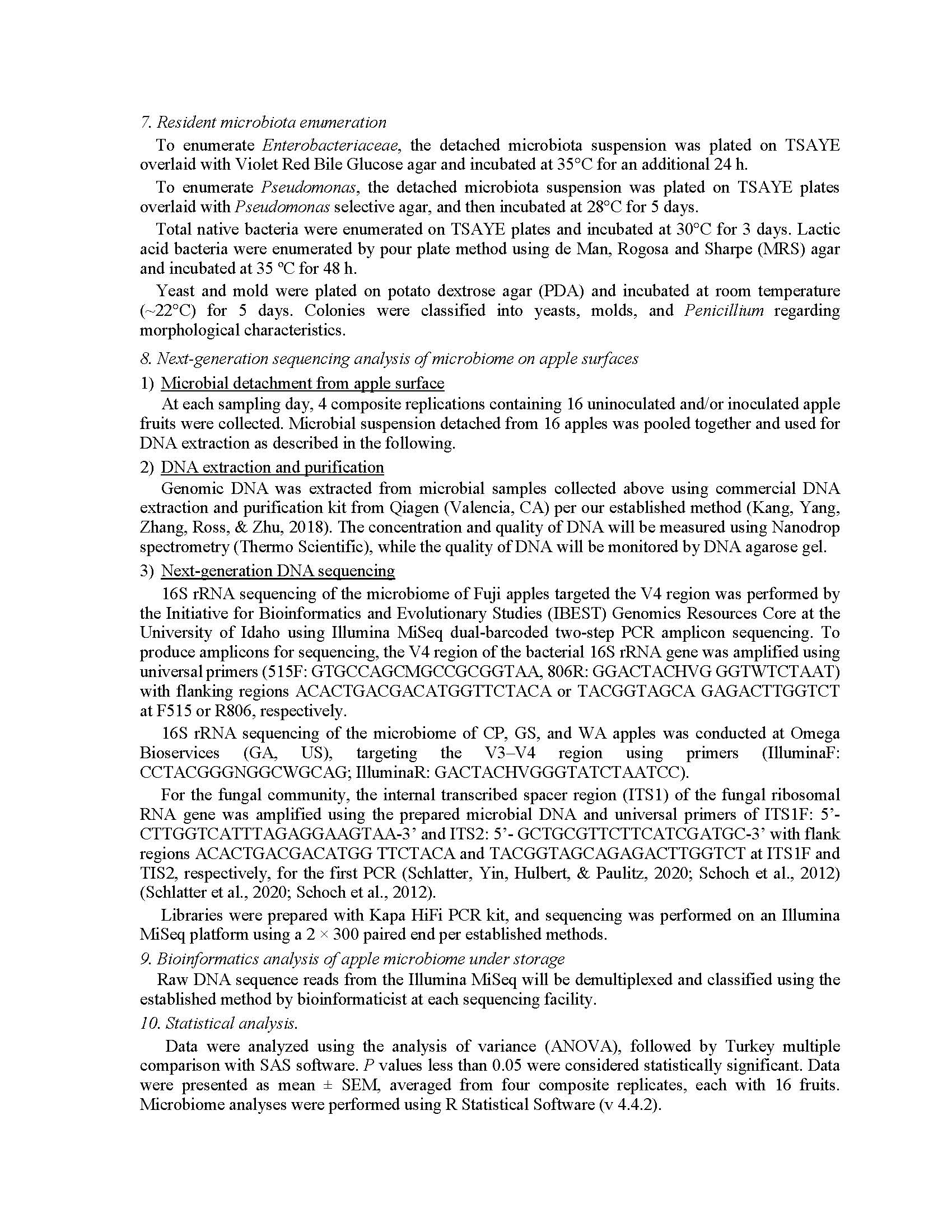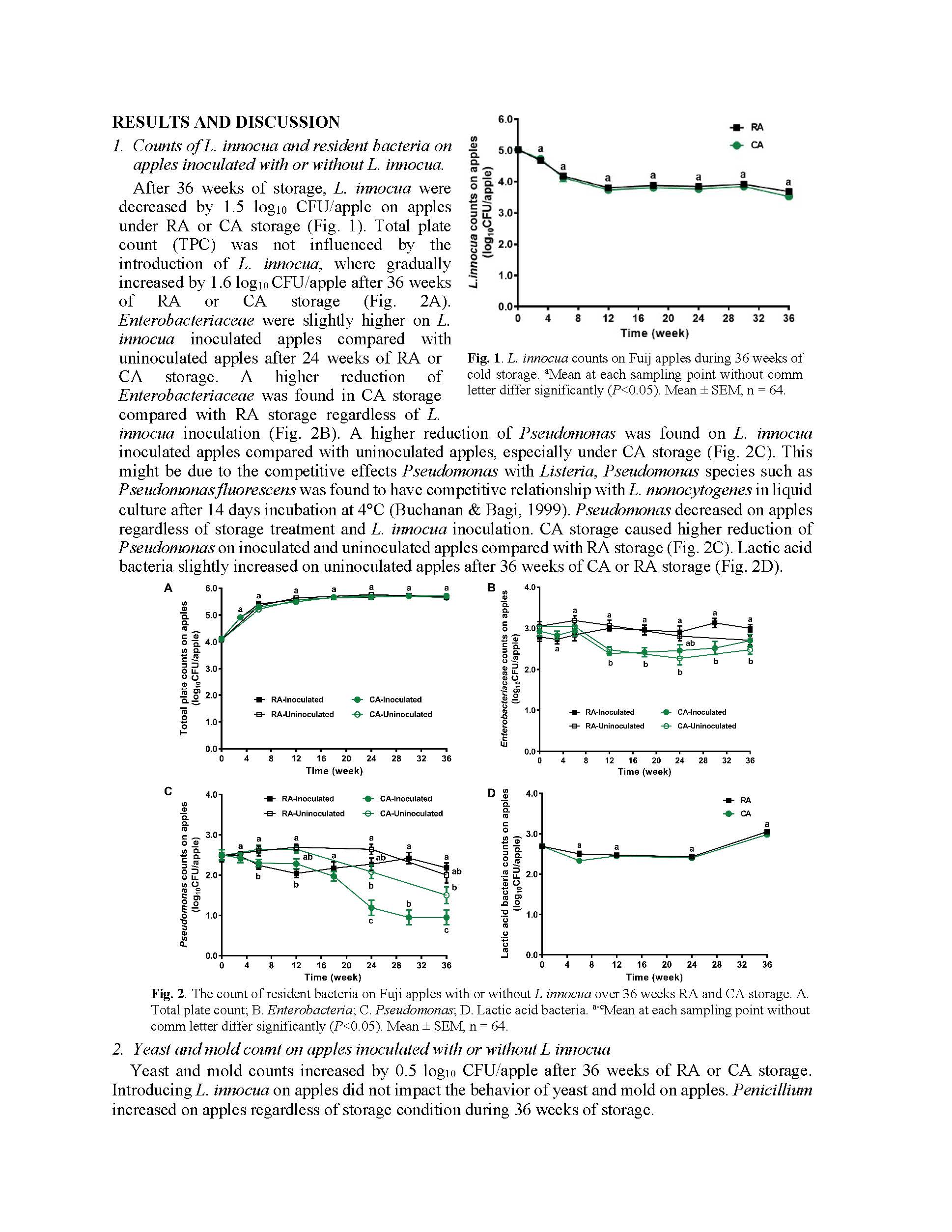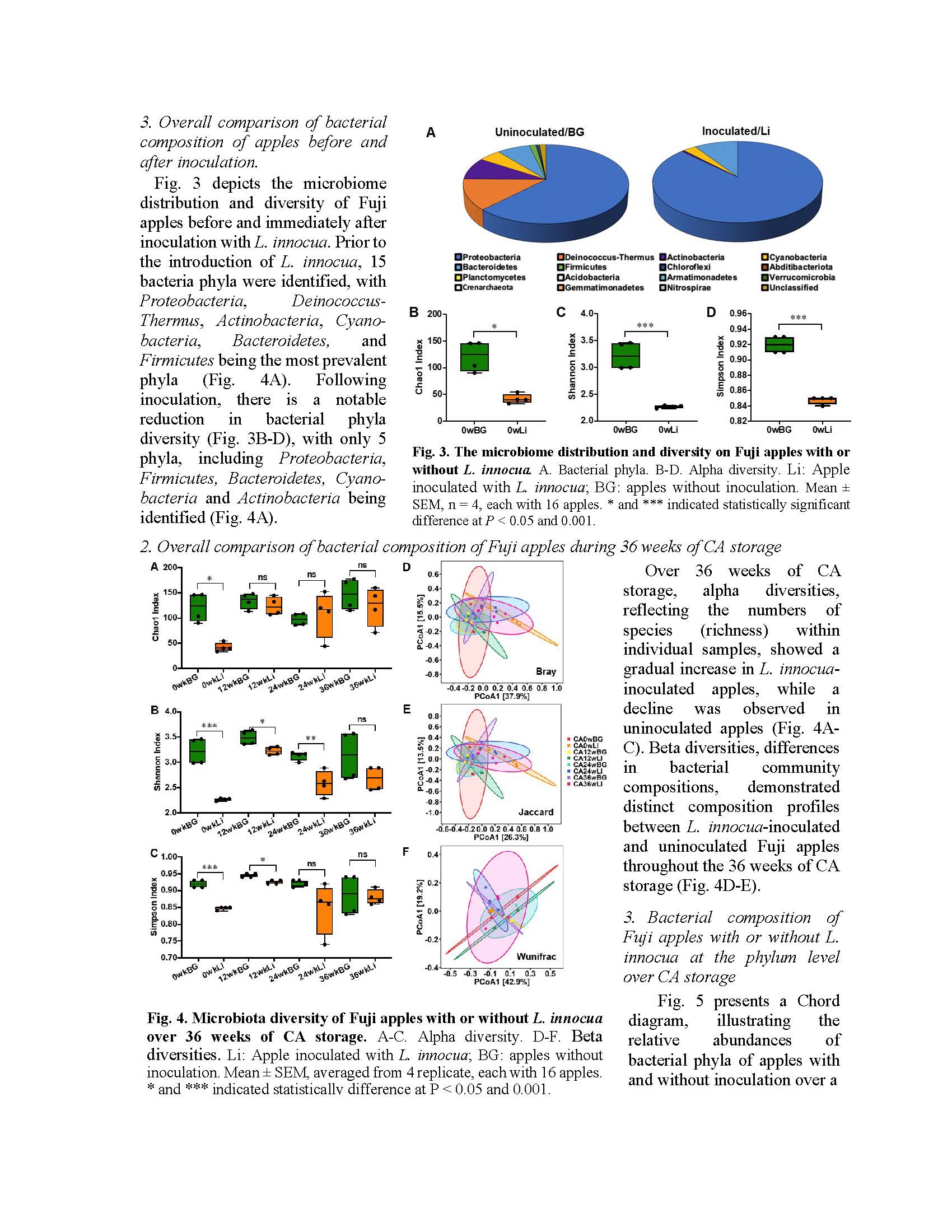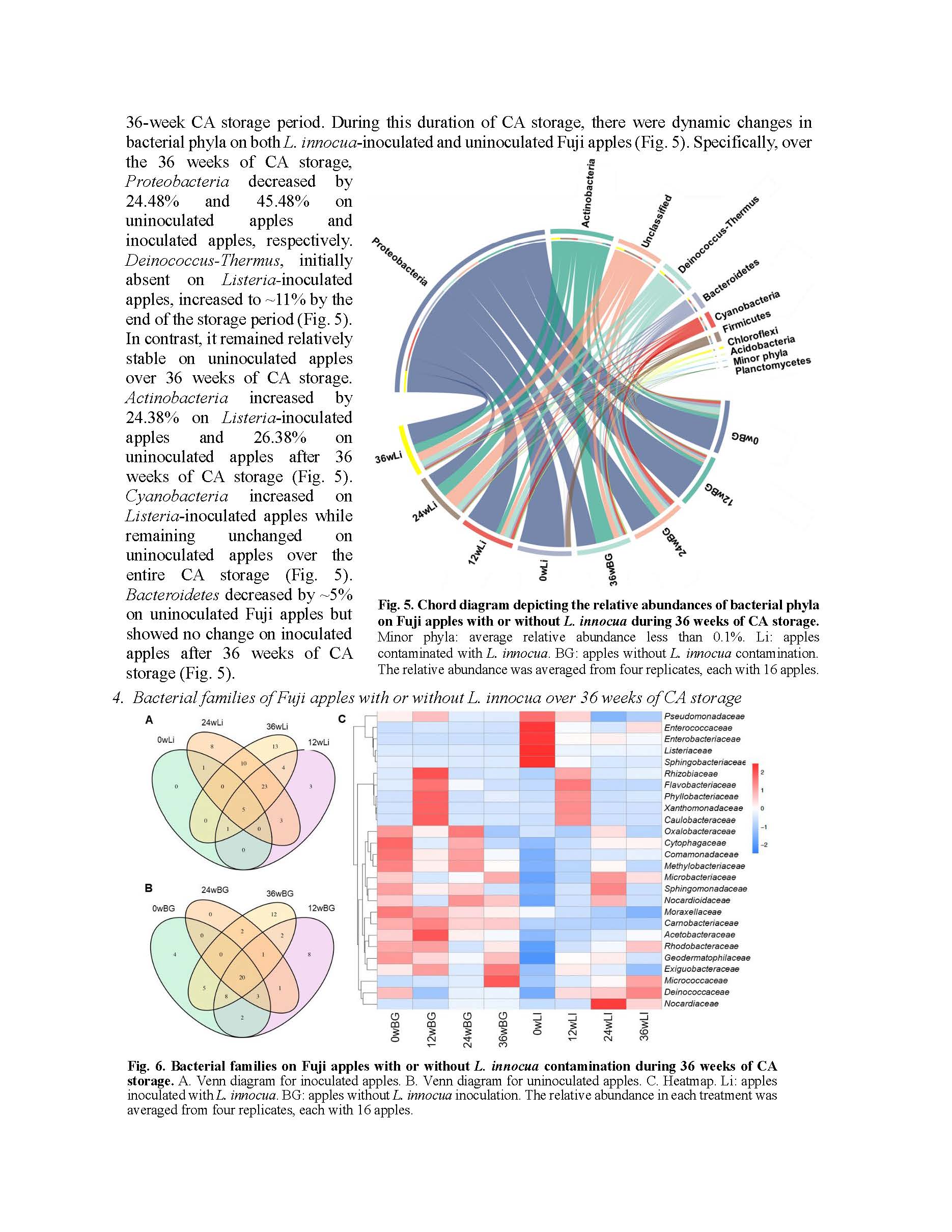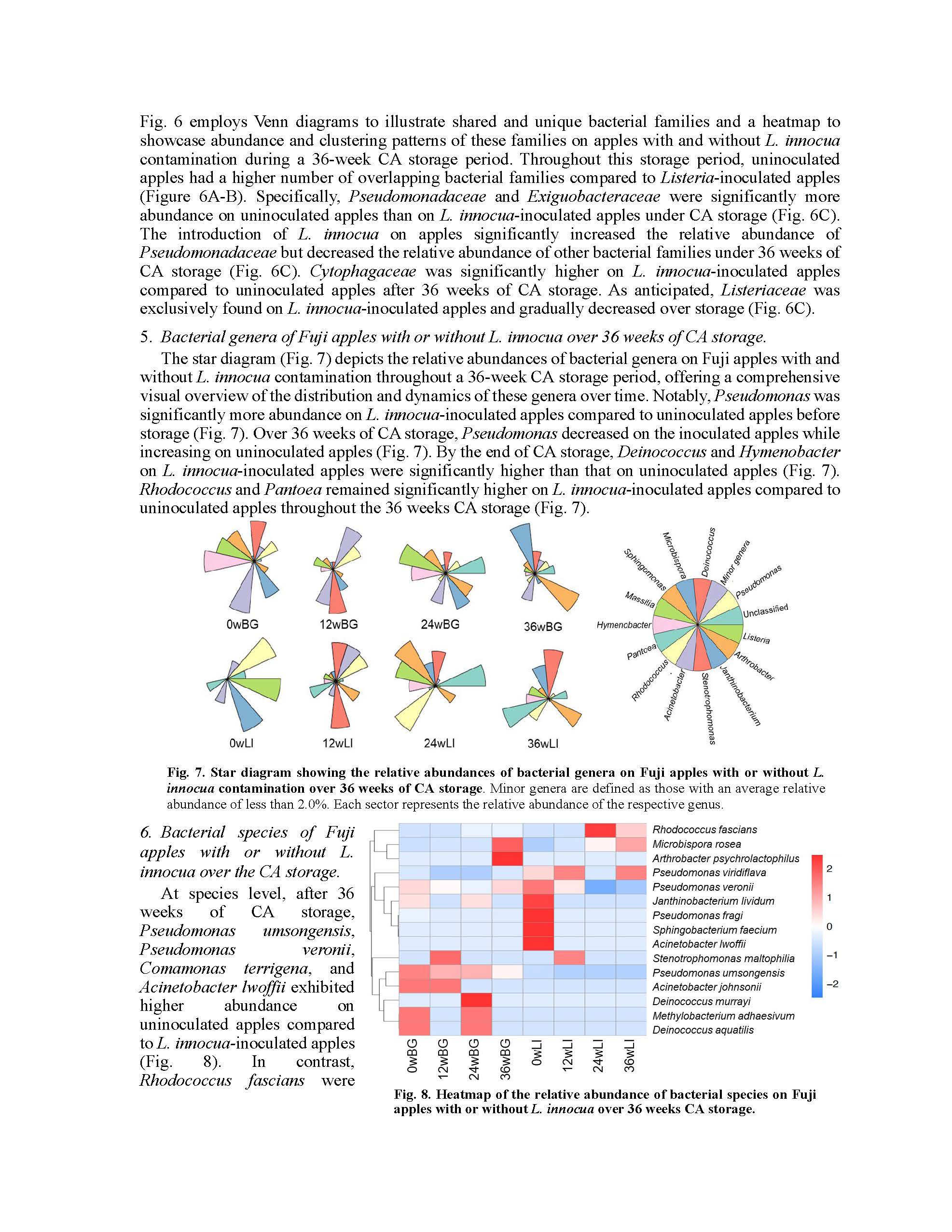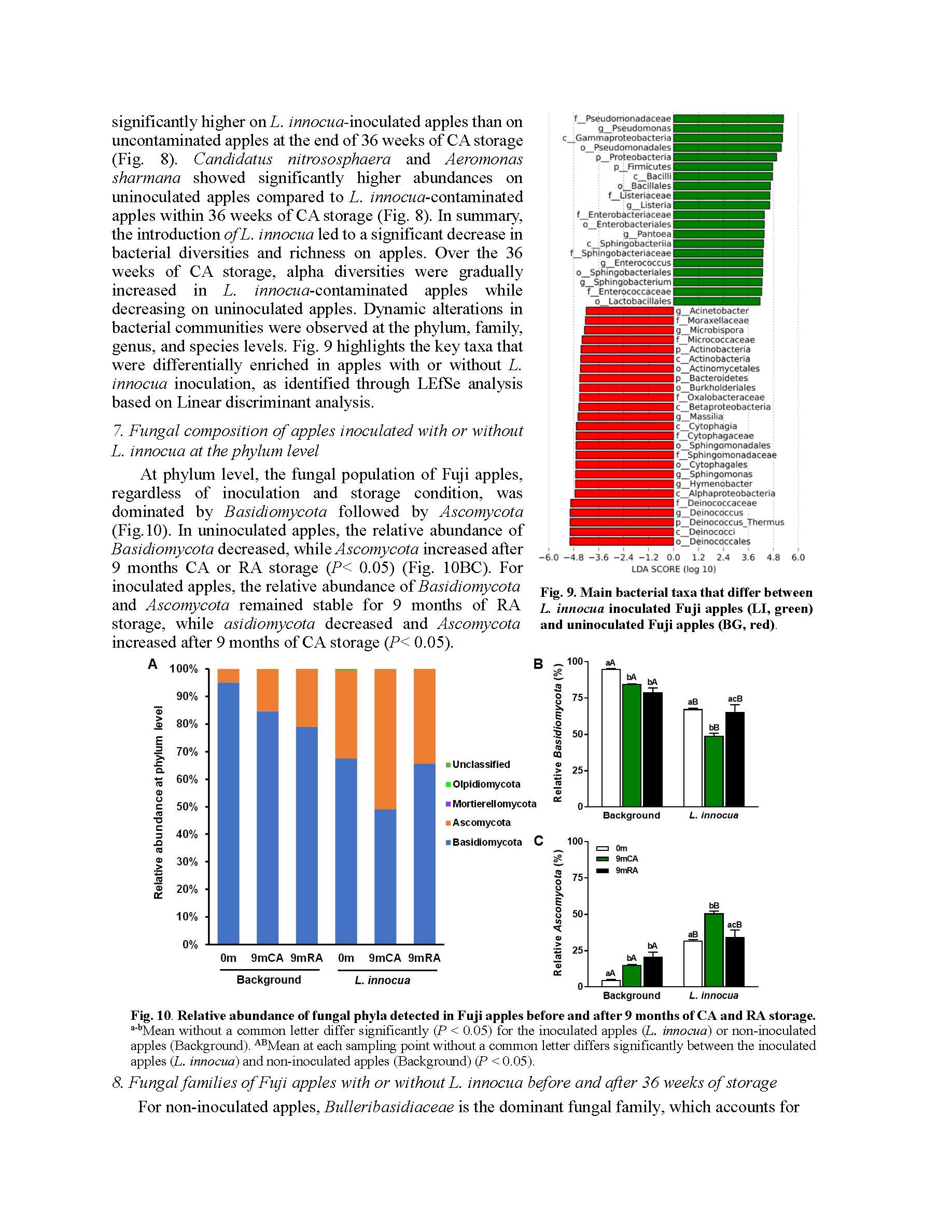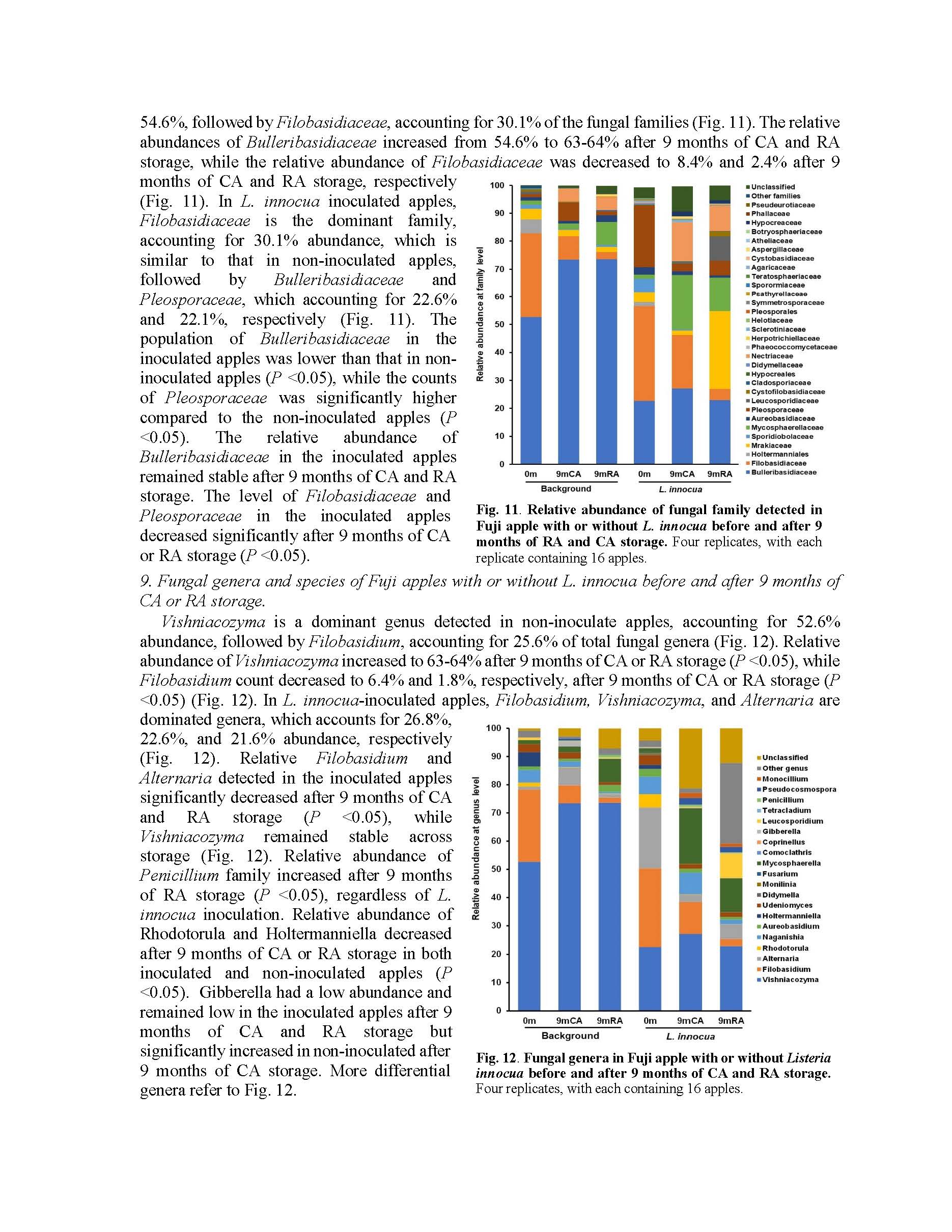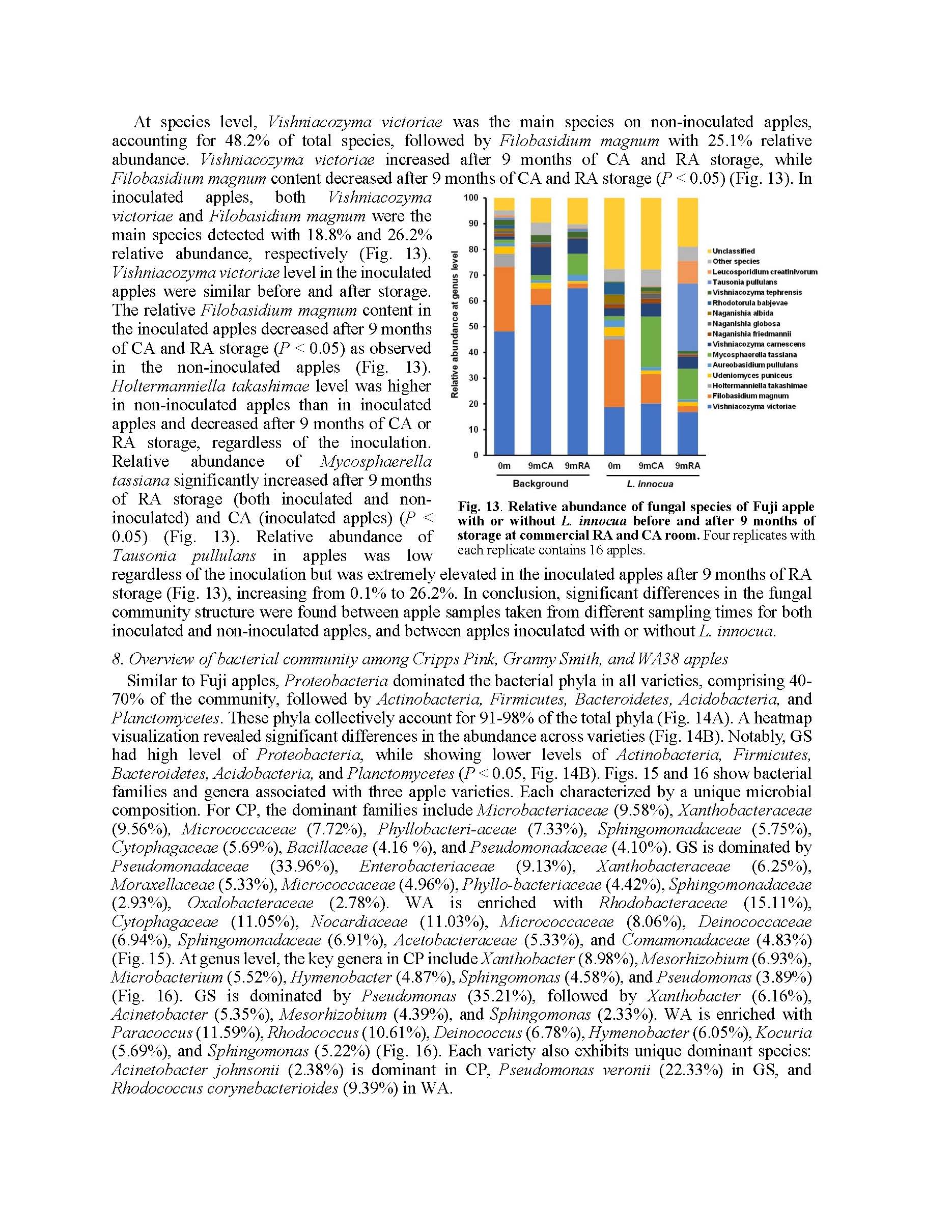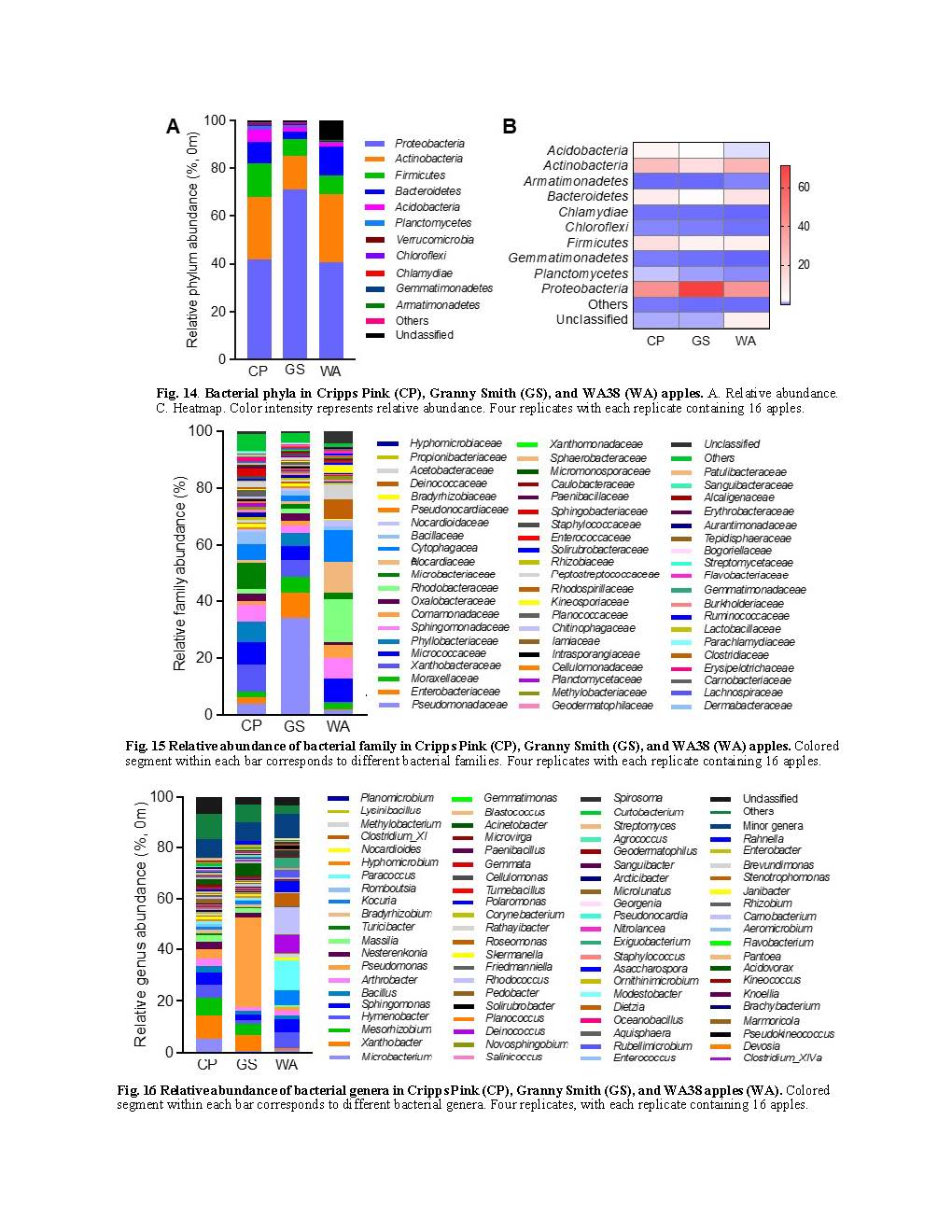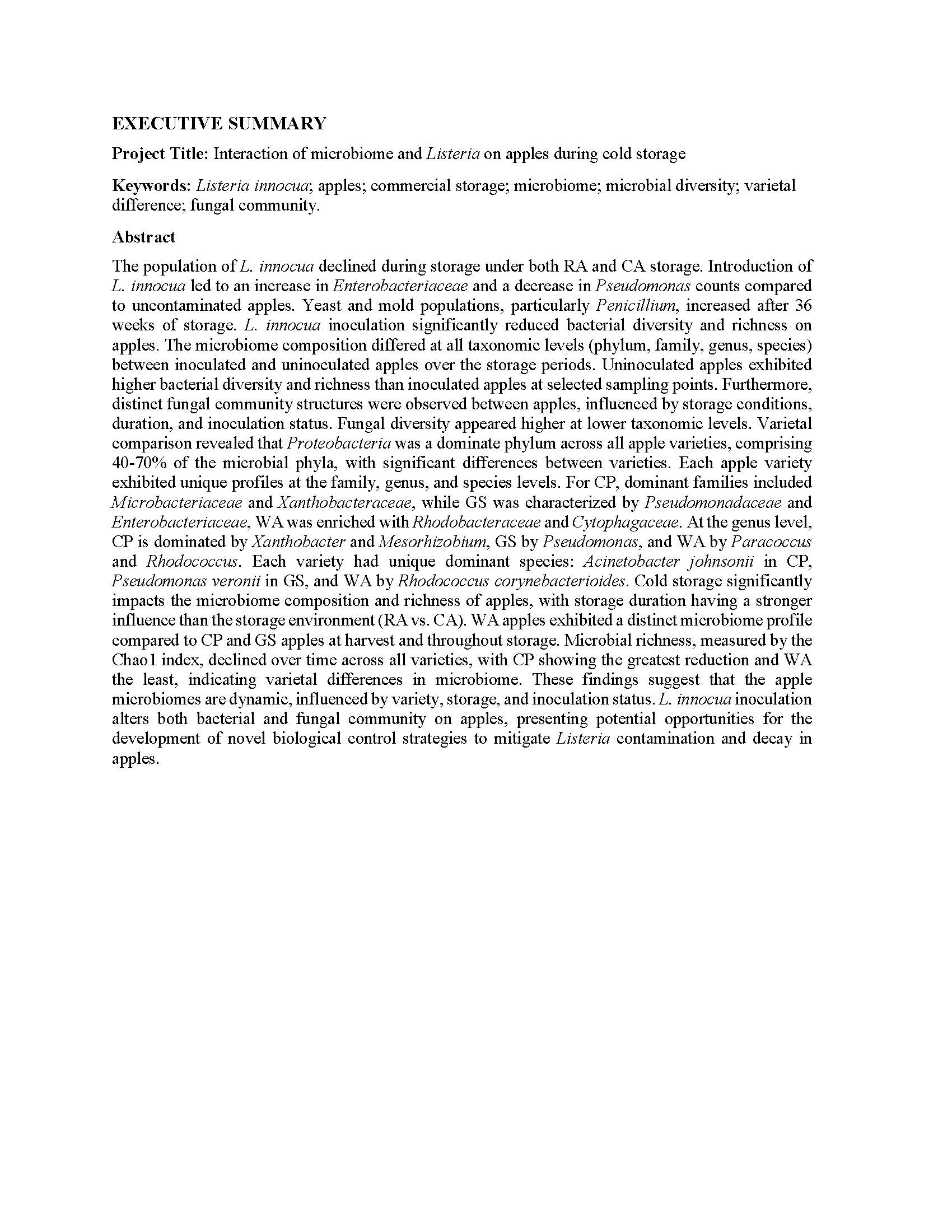Interaction of microbiome and Listeria on apples during cold storage
Author: Meijun Zhu
Published: 2025
Summary: The population of L. innocua declined during storage under both RA and CA storage. Introduction of L. innocua led to an increase in Enterobacteriaceae and a decrease in Pseudomonas counts compared to uncontaminated apples. Yeast and mold populations, particularly Penicillium, increased after 36 weeks of storage. L. innocua inoculation significantly reduced bacterial diversity and richness on apples. The microbiome composition differed at all taxonomic levels (phylum, family, genus, species) between inoculated and uninoculated apples over the storage periods. Uninoculated apples exhibited higher bacterial diversity and richness than inoculated apples at selected sampling points. Furthermore, distinct fungal community structures were observed between apples, influenced by storage conditions, duration, and inoculation status. Fungal diversity appeared higher at lower taxonomic levels. Varietal comparison revealed that Proteobacteria was a dominate phylum across all apple varieties, comprising 40-70% of the microbial phyla, with significant differences between varieties. Each apple variety exhibited unique profiles at the family, genus, and species levels. For CP, dominant families included Microbacteriaceae and Xanthobacteraceae, while GS was characterized by Pseudomonadaceae and Enterobacteriaceae, WA was enriched with Rhodobacteraceae and Cytophagaceae. At the genus level, CP is dominated by Xanthobacter and Mesorhizobium, GS by Pseudomonas, and WA by Paracoccus and Rhodococcus. Each variety had unique dominant species: Acinetobacter johnsonii in CP, Pseudomonas veronii in GS, and WA by Rhodococcus corynebacterioides. Cold storage significantly impacts the microbiome composition and richness of apples, with storage duration having a stronger influence than the storage environment (RA vs. CA). WA apples exhibited a distinct microbiome profile compared to CP and GS apples at harvest and throughout storage. Microbial richness, measured by the Chao1 index, declined over time across all varieties, with CP showing the greatest reduction and WA the least, indicating varietal differences in microbiome. These findings suggest that the apple microbiomes are dynamic, influenced by variety, storage, and inoculation status. L. innocua inoculation alters both bacterial and fungal community on apples, presenting potential opportunities for the development of novel biological control strategies to mitigate Listeria contamination and decay in apples.
Keywords:

